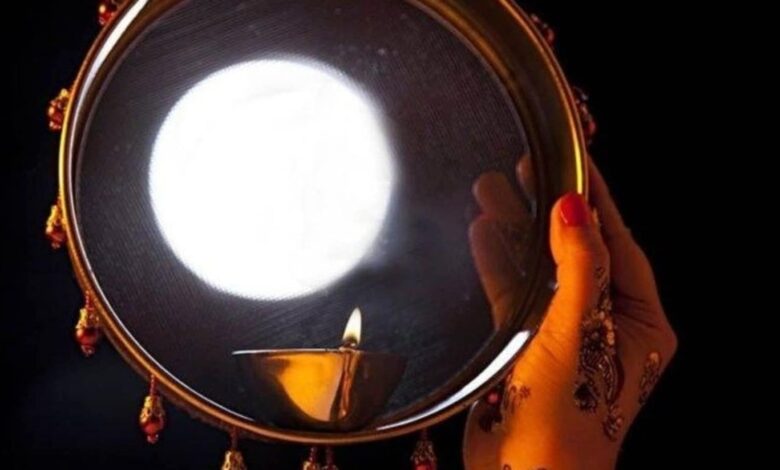Karva Chauth 2024: The mythological beginnings of the long-standing tradition honouring love and marital devotion

The occasion of Karva Chauth over the years, has been subjected to quite some debate with many finding the expectation of women having to fast through the day, with the intention of praying for their husband’s long life, problematic to say the least. That being said, despite the naysayers, the tradition itself has persed, and how. To date, Karva Chauth is voraciously celebrated, not just across India, but also abroad. There is something quite heartening about the gesture the festival stands to denote, one that is now being routinely reciprocated men with many husbands also symbolically partaking in the fast, as a mark of respect for their wives. But have you ever wondered what spun the foundation of Karva Chauth, which has sustained itself as a sentiment across ages? Multiple mythically-rooted tales hold the credit. India observes the occasion of Karva Chauth today, October 20(Photo: Pinterest) KarvaThe legend of Karva’s devotion is one that strongly resonates with the sentiment of love, truly surpassing all barriers. The story goes that Karva was known for her unshakeable devotion to her husband, so much so that it bestowed her with spiritual fortitude. During a bath in the river, Karva’s husband gets attacked a crocodile. Karva intervenes, tying the crocodile’s mouth with yarn. She requests Yamdev, the God of death, to banish the crocodile. Though Yamdev initially refuses, he is quick to recognise the power of a devoted wife’s curse and so not only obliges, but also blesses her husband with a long life. Queen VeeravatiQueen Veeravati was the only ser of seven doting brothers. Shortly after her marriage, she was at her parent’s house where she chose to undertake a fast for her husband’s well-being, who was away at war. The day was long and the moon refused to come up, rendering the Queen weak. Not being able to see their ser in this state, her brothers, with good intentions but disastrous consequences, came up with a ploy. Differing accounts suggest how they either created the illusion of a mirror in a pipal tree or started a fire behind the mountains. As per the first narrative, Veeravati mook the mirror for the moon and broke her fast while in the latter she was convinced her brothers that the glow from the fire was actually the glow of the moon. Either which way, shortly after, she was informed of her husband’s demise. Taking pity on the heartbroken newlywed queen, Goddess Parvati cut her finger, blood from which was used to revive Veeravati’s husband. This was followed the Goddess strongly advising her to continue keeping the fast, with utmost faith, devotion and alertness. In alternate versions, Yamdev is also said to have brought back Veeravati’s husband from the dead. This legend, as a matter of fact, is also referenced in the Mahabharata, with Draupadi too keeping a fast for the well-being of the Pandavas. Satyavan and SavitriWhen Lord Yamdev came to collect Satyavan’s soul, his wife Savitri did all she could to convince him to spare his life. Yamdev wouldn’t budge and so Savitri gave up eating food and drinking water to have her request considered. Though Yamdev was impressed he said there was no way he could return Satyavan’s soul. Thus, in exchange, Savitri asked for the boon of being blessed with children which Yamdev granted her. However, the catch was that Savitri was too devoted to her husband to let any other man approach her. Caught in a fix, Yamdev was forced to restore Satyavan back to life. We wish a very happy Karva Chauth to all those celebrating and all those hoping to celebrate soon!






